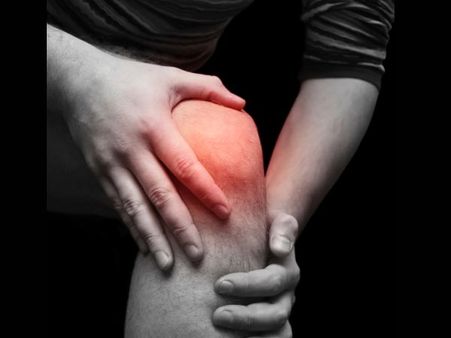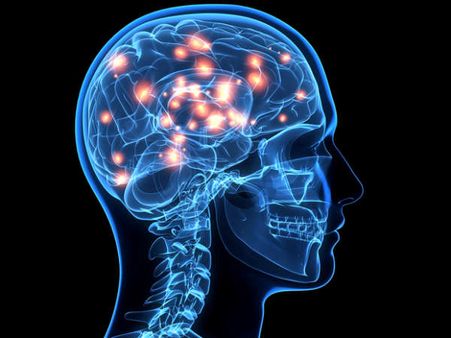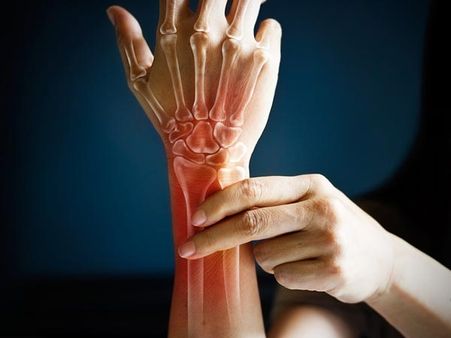Just In
- 7 hrs ago

- 9 hrs ago

- 10 hrs ago

- 10 hrs ago

Don't Miss
- Sports
 DC vs GT, IPL 2024: Was Prithvi Shaw Out? Fans Question Umpiring Level In IPL Following Controversial Catch
DC vs GT, IPL 2024: Was Prithvi Shaw Out? Fans Question Umpiring Level In IPL Following Controversial Catch - Finance
 DCB Bank Q4 Results: PAT Grew 9% To Rs 156 Cr, NII Jumps 4.5%; Dividend Declared
DCB Bank Q4 Results: PAT Grew 9% To Rs 156 Cr, NII Jumps 4.5%; Dividend Declared - Technology
 OPPO Find X7 Ultra Camera Deep-Dive: Pushing the Boundaries of Photography on a Smartphone
OPPO Find X7 Ultra Camera Deep-Dive: Pushing the Boundaries of Photography on a Smartphone - Movies
 Yeh Rishta Kya Kehlata Hai New Cast Fees: Per-Episode Salaries Of Samridhii, Rohit & Others Revealed
Yeh Rishta Kya Kehlata Hai New Cast Fees: Per-Episode Salaries Of Samridhii, Rohit & Others Revealed - News
 INDIA Bloc's One Year-One PM Formula Will Destroy Country: PM Modi
INDIA Bloc's One Year-One PM Formula Will Destroy Country: PM Modi - Education
 MP Board Class 10th, 12th Results 2024, Know Alternative Ways to Check Your Result
MP Board Class 10th, 12th Results 2024, Know Alternative Ways to Check Your Result - Automobiles
 Aston Martin Vantage Launched In India At Rs 3.99 Crore
Aston Martin Vantage Launched In India At Rs 3.99 Crore - Travel
 Mumbai Opens BMC Headquarters For Exclusive Heritage Tour
Mumbai Opens BMC Headquarters For Exclusive Heritage Tour
Autoimmune Arthritis: Causes, Types, Symptoms, Diagnosis And Treatment
Every year on 20 May, World Autoimmune Arthritis Day is observed globally to raise awareness on autoimmune arthritis and diseases associated with it. In this article, we'll discuss the causes, symptoms, diagnosis and treatment of autoimmune arthritis.
Autoimmune arthritis refers to a group of different types of arthritis conditions. Autoimmune arthritis occurs when the body's immune system mistakenly attacks the normal healthy cells, resulting in inflammation in the joints that can cause pain, stiffness and difficulty in movement.

Normally, the immune system can find out the difference between the foreign invaders such as bacteria, virus, fungi and parasites and your own cells. But what happens in autoimmune arthritis is the body sends messages to the cells including the white blood cells instructing them to attack the body's own cells and tissues.

Types Of Autoimmune Arthritis
There are more than 100 types of arthritis and each has different symptoms. Rheumatoid arthritis (RA) and psoriatic arthritis are the most common types of autoimmune arthritis.
• Rheumatoid arthritis - This is the most common type of arthritis that affects more women than men [1]. It affects the lining of the joints causing pain and swelling, resulting in bone erosion and joint deformity. Autoimmune arthritis causes pain and swelling in the hands, feet, wrists, elbows, ankles, hips and shoulders.
• Psoriatic arthritis - It is a chronic, inflammatory arthritis that can occur in people with a skin condition called psoriasis, which accounts to about 20 to 30 per cent of such cases [2]. It usually can affect any part of your body, including fingertips and spine. Joint pain, swelling and stiffness are the symptoms of psoriatic arthritis.
Another common type of autoimmune arthritis is juvenile idiopathic arthritis (JIA), also known as juvenile rheumatoid arthritis occurs due to inflammation in the synovium (the tissue that lines the inside of joints). It mostly affects children aged 16 or younger [3].

Symptoms Of Autoimmune Arthritis
•
Deformed
joints
•
Difficulty
in
movement
•
Hard
bumps
of
tissues
under
the
skin
on
your
arms
•
Dry
mouth
•
Difficulty
in
sleeping
•
Fatigue
•
Fever
•
Anaemia
•
Weight
loss
•
Eye
inflammation
•
Stiffness
and
swelling
in
the
joints
•
Joint
pain

Risk Factors Of Autoimmune Arthritis
The risk factors of autoimmune arthritis depend on the type of arthritis. However, these are the common risk factors:
•
Age
•
Gender
•
Family
history
•
Smoking

Complications Of Autoimmune Arthritis
The complications may vary depending on the type of autoimmune arthritis. For example, rheumatoid arthritis increases the risk of coronary heart disease and cognitive impairment [4], [5]. Also, the risk of diabetes is higher among patients with rheumatoid arthritis and psoriatic arthritis [6].

Diagnosis Of Autoimmune Arthritis
To diagnose autoimmune arthritis, rheumatologists will study the immune system, ask about your symptoms and any other medical conditions. After which, the doctor will recommend some diagnostic tests like X-rays, CT scan or MRI scan, blood tests and certain tests like anti-cyclic citrullinated peptide antibody test (anti-CCP) for diagnosing rheumatoid arthritis [7].

Treatment Of Autoimmune Arthritis
Depending on the patient's symptoms, the type of arthritis and overall health, the doctor will recommend a treatment procedure for autoimmune arthritis.
Medications
Certain medications can help treat autoimmune arthritis such as nonsteroidal anti-inflammatory drugs, disease-modifying antirheumatic drugs (DMARDs), corticosteroids, immunosuppressant drugs and biological agents [8].
Physical therapy
Flexibility and strengthening exercises can help improve your range of motion and build muscle strength. This will help increase your strength and flexibility and will reduce your pain at the same time. To protect your joints and reduce pain, your occupational therapist can recommend you assistive devices such as canes and crutches [9].

Lifestyle Changes For Patients With Autoimmune Arthritis
•
Exercise
regularly
to
improve
the
range
of
motion
in
joints.
•
Quit
smoking
as
it
may
worsen
the
symptoms
of
autoimmune
arthritis.
•
Eat
a
healthy,
well-balanced
diet.
•
Do
not
take
too
much
of
stress.
•
Maintain
a
healthy
weight.
-
 pregnancy parentingWhite Lung Syndrome: What Are The Symptoms Of The Disease Rampant In China? How Does It Spread?
pregnancy parentingWhite Lung Syndrome: What Are The Symptoms Of The Disease Rampant In China? How Does It Spread? -
 healthWorld HIV/AIDS Day: What Is The Difference Between HIV and AIDS?
healthWorld HIV/AIDS Day: What Is The Difference Between HIV and AIDS? -
 healthDengue 101: Causes, Symptoms, Risks, Complications, Treatment, Prevention, Diet And More
healthDengue 101: Causes, Symptoms, Risks, Complications, Treatment, Prevention, Diet And More -
 healthDiarrhoea 101: Causes, Symptoms, Risks, Complications, Treatment, Prevention, Diet And More
healthDiarrhoea 101: Causes, Symptoms, Risks, Complications, Treatment, Prevention, Diet And More -
 health'Epileptic Nightmare' of Neurocysticercosis: The Hidden Epidemic of Parasites Causing Epilepsy
health'Epileptic Nightmare' of Neurocysticercosis: The Hidden Epidemic of Parasites Causing Epilepsy -
 pregnancy parentingLife-Threatening Risk During Pregnancy: Sepsis Can Harm Both Mother and Baby
pregnancy parentingLife-Threatening Risk During Pregnancy: Sepsis Can Harm Both Mother and Baby -
 healthStay Informed: The Hidden Dangers of Legionnaires' Disease and How to Prevent It
healthStay Informed: The Hidden Dangers of Legionnaires' Disease and How to Prevent It -
 healthMyths vs Facts: Can A Single Mosquito Bite Really Give You Dengue?
healthMyths vs Facts: Can A Single Mosquito Bite Really Give You Dengue? -
 healthTop 5 Reasons For Vaginal Rash: When You Should See A Doctor
healthTop 5 Reasons For Vaginal Rash: When You Should See A Doctor -
 healthCan Inhaling Menthol Help Improve Memory For Alzheimer's Disease?
healthCan Inhaling Menthol Help Improve Memory For Alzheimer's Disease? -
 healthWorld Vitiligo Day 2023: Are You At Risk Of Developing Vitiligo?
healthWorld Vitiligo Day 2023: Are You At Risk Of Developing Vitiligo? -
 beautyFather's Day 2023: Stretch Marks In Men, Causes And Treatments
beautyFather's Day 2023: Stretch Marks In Men, Causes And Treatments


 Click it and Unblock the Notifications
Click it and Unblock the Notifications





